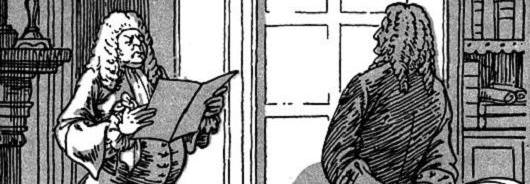
About Andrew Cusack
 Writer, web designer, etc.; born in New York; educated in Argentina, Scotland, and South Africa; now based in London.
Writer, web designer, etc.; born in New York; educated in Argentina, Scotland, and South Africa; now based in London. read more
News
Blogs
Reviews & Periodicals
Arts & Design
World
France
Mitteleuropa
Knickerbockers
Argentina
The Levant
Africa
Cape of Good Hope
Netherlands
Scandinavia
Québec
India
Muscovy
Germany
Academica

• It is almost certain that we will never know who the actual winner of the 2020 presidential election was: the methods of fraud which might have been deployed are by their very nature ephemeral. Anton is right in that the best summary of the irregularities is from the U.S.-based Swedish academic Claes Ryn: How the 2020 Election Could Have Been Stolen. Ryn’s academic work is always an insightful read so his take here is worthwhile.
• I’ve said it before and I’ll say it again: the Frenchman Pascal-Emmanuel Gobry is always worth reading and always brings something to the table. P.E.G. argues the pre-Trumpers, anti-Trumpers, and never-Trumpers on the American centre-right need to recognise the reasons why Trump became a political phenomenon in the first place: Why Establishment Conservatives Still Miss the Point of Trump.
• One of the best books on urbanism in the Cusackian library is Allan Jacobs’s Great Streets. The expert work with its illustrative maps, diagrams, and line drawings is now a quarter-century old and on this anniversary Theo Mackey Pollack examines What Makes a Great Street.
• A new book argues that our vision of Northern Ireland as a corrupt and gerrymandered statelet from its birth in 1921 until the imposition of direct rule in 1972 is largely a myth. The editors Patrick J Roche and Brian Barton take to the pages of the once-great Irish Times to offer A Unionist History of Northern Ireland. It’s… an interesting perspective that will doubtless provoke a debate, but colour me sceptical.
Search
Instagram: @andcusack
Click here for my Instagram photos.Most Recent Posts
- In the Courts of the Lord February 13, 2025
- American Exuberant February 10, 2025
- Crux Alba Journal Launch February 10, 2025
- The Year in Film: 2024 February 10, 2025
- Articles of Note: 27 January 2025 January 27, 2025
Most Recent Comments
- on When an American aristocrat meets a European Grand Duke
- on The Year in Film: 2024
- on Jesuit Gothic
- on The Borough Synagogue
- on No. 82, Eaton Square
- on Christ Church
- on The Last Will and Testament of Louis XVI
- on Amsterdam
- on Season’s Greetings from the Seventh
- on Season’s Greetings from the Seventh
Book Wishlist
Monthly Archives
Categories



“It is almost certain that we will never know who the actual winner of the 2020 presidential election was… ”
Do you actually believe there is any doubt? I understand you are a Tory and a conservative, but there are many Republicans who concede publicly and privately that there is no doubt whatsoever. Biden won the election. Dozens of courts confirmed it. State legislatures and the Electoral College confirmed it. If you really support Trump’s delusions, or even entertain their possibility, then you living in a world of “alternative facts.” I am a moderate Republican, and would be a Tory in England, but Trump is no Republican. He is a nationalist narcissist, given to authoritarianism, who fabricated the whole idea that there was anything less than honest about the election. He then fomented the breach of the Capitol. I am surprised that an intelligent man like you cannot differentiate between normal Republican conservatism and the threat that Trump posed to American democracy.
My apologies: I was unclear. I didn’t mean of the electoral college and the states sending their electoral votes etc. but of the popular votes within the states.
On the matter of the vote within the states I think Claes Ryn’s piece linked to above says everything that is needed (more or less).
The suspicions over the election in a handful of states that Dr Ryn highlights are a completely different question from that of the character of President Trump and his relationship to conservatism and the centre-right. That might take an entire book to cover, or at least a symposium so I won’t attempt to cover it here.
Mr Anton’s piece (also linked to above) argues that much of the blame for the flourishing of suspicious electoral practices ultimately lies with Mr Trump anyhow — given that the then-President didn’t lift a finger to ensure it was a transparent election even though it was obvious to anyone from Day One of his presidency that the metropolitan areas in these states would be a safe-haven for dodgy practices at the next presidential election.